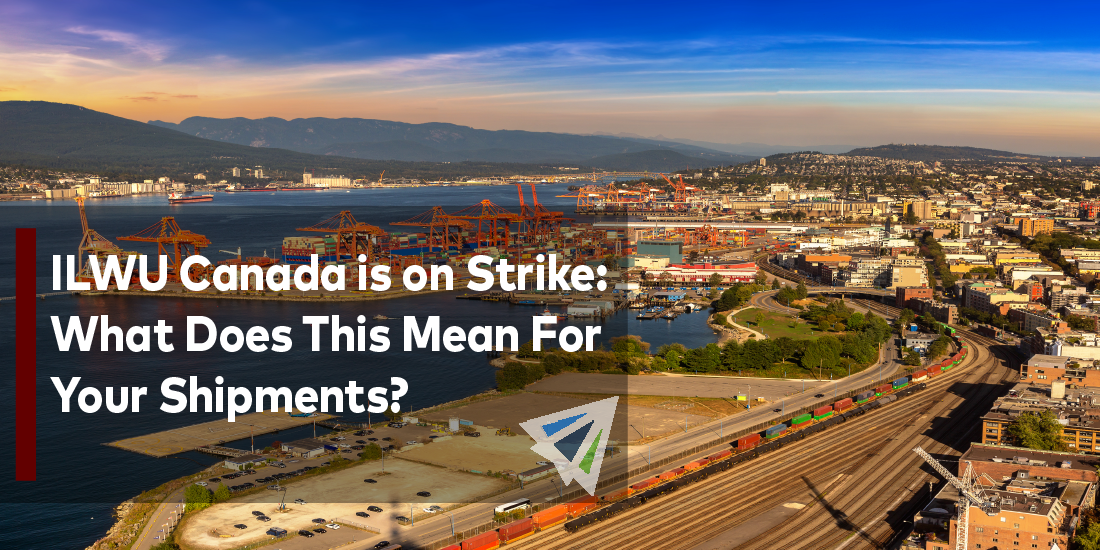International Longshore and Warehouse Union in Canada dockworkers have been on strike since Saturday, July 1st.
This comes after negotiations with the British Columbia maritime Employers Association (BCMEA) failed to reach a resolution on a new labor contract.
Key Takeaways:
- The latest developments and potential impacts this strike has on the supply chain
- How does this impact trade in the U.S. and in Canada?
- The backstory on how this strike came to be
How This Came About
The ILWU in Canada has been operating without a contract since March 31st, 2023.
The Canadian government appointed two mediators that oversaw discussion between the BCMEA and ILWU Canada, this went through the end of May.
In early June, over ninety-nine percent of the ILWU Canada workers voted in favor of supporting a strike if a labor deal was not reached.
The vote took place during a 21-day cooling off period between the BCMEA and the ILWU Canada.
Some of the major issues during these contract negotiations, per CNBC, include port automation, union concerns about the loss of work through “contracting out”, and the cost of living and how inflation has impacted workers’ income level.
Latest Developments:
The strike by roughly 7,400 Canadian dockworkers, started on Saturday and has continued into this week.
As of Tuesday evening, per Freightwaves, the BCMEA said negotiations with ILWU Canada were currently paused, pending further discuss with federal mediators.
Both the ILWU Canada put out statements regarding the pause in discussions.
As of Wednesday July 5th, the Canadian Labor Minister met with the British Columbia Labor Minister to discuss this port strike.
As of now, government intervention is not expected, per a statement from the office of the Minister of Labor and reported by CNBC:
“We are not looking past the bargaining table, because the best deals are made at that table. Federal mediators continue to support the parties in their negotiations.”
There have been some calls for the federal government to recall Parliament to consider back-to-work legislation, which would end the strike at these ports.
However, as CNBC notes, Canada’s Parliament is not currently in session, so members would have to be recalled – which could take days. Remote voting is an option but there would need to be a certain number of members to be present for the vote to happen.
Potential Impacts:
To put it in perspective, per CNBC, about fifteen percent of container trade that moves through the Port of Vancouver is destined to or from the U.S., with items transported by rail.
Additionally, around two-thirds of containerized import volumes that come into the Port of Prince Rupert are destined for the U.S. via rail. Canadian National, Canadian Pacific, and BNSF all operate at these ports.
These ports on the Canadian West Coast are crucial for Midwest manufacturers and the auto industry.
CPKC issued a customer advisory on Wednesday June 28th, regarding the potential (at the time) work stoppage:
“The work stoppage related to this notice could impact port operations in British Columbia. At this time, we do not anticipate any significant service interruptions to result from this work stoppage, and as such, CPKC has not initiated embargoes related to a potential service interruption, but we are closely monitoring developments to evaluate any impact to shipments on CPKC’s network. We will provide updates as necessary.”
Furthermore, the International Longshoremen’s Association – which represents maritime workers in North America – said in a statement that there will be no diverted cargo from striking ports that would be accepted.
Looking Ahead
Should you have any questions regarding this and how it could impact your shipments, please reach out to our team today.
Additionally, we have our weekly market updates that can provide you with relevant freight news, updates, developments across the industry, and more.
